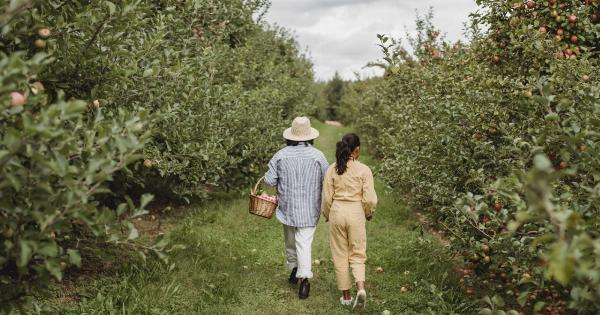The rural areas of our country have long been known for their peaceful landscapes, close-knit communities, and strong family values. However, beneath this idyllic facade, a concerning trend has started emerging – teenage betting.
The rise of gambling among young people in the countryside is both surprising and worrying, as it poses significant risks to their well-being and sets a dangerous precedent for future generations.
The Influence of Accessibility
One major factor contributing to the surge in teenage betting in rural communities is the increasing accessibility of gambling platforms.
With the advent of the internet and the widespread use of smartphones, young people now have easy access to online gambling sites. This has opened up a dangerous world for adolescents, where they can discreetly place bets without attracting much attention.
The lack of physical casinos or betting shops in rural areas also plays a role in pushing young people towards online gambling.
The absence of visible gambling establishments makes it easier for teenagers to engage in these activities without raising suspicion, as they can participate from the comfort of their own homes or even in public spaces using their smartphones.
The Impact of Social Isolation
Another contributing factor to teenage betting in the countryside is the issue of social isolation.
Rural areas often lack the same level of entertainment and recreational opportunities as urban centers, leaving young people with limited options for leisure activities. The lack of engaging alternatives can drive teenagers towards online gambling, seeking excitement and a sense of belonging.
The feeling of isolation can also be exacerbated by the influence of social media. Many young people in the countryside are exposed to images and posts showcasing glamorous lifestyles and extravagant winnings associated with gambling.
These portrayals create a skewed perception of reality, making betting seem like an attractive and socially acceptable way to escape the monotony of rural life.
The Role of Peer Pressure
Peer pressure is a powerful force that can lead teenagers down dangerous paths. In many rural communities, gambling has become a popular social activity among young people.
It is not uncommon for teenagers to gather in secret locations and organize betting events, with participants trying to outdo one another in terms of high stakes and winnings.
The desire to fit in and be accepted by their peers often pushes teenagers to engage in activities they may not otherwise consider.
The gambling culture that has emerged in these communities creates a sense of belonging and camaraderie around risky behavior, making it more challenging for teenagers to resist the allure of betting.
The Consequences of Teenage Betting
The consequences of teenage betting can be devastating, both for the individuals involved and for the wider community.
When young people develop gambling habits at an early age, they are more likely to experience financial difficulties, academic decline, and mental health issues later in life.
The thrill of gambling can quickly become addictive, leading teenagers to prioritize betting over essential aspects of their lives, such as education and social relationships.
This can result in poor academic performance, strained family dynamics, and isolation from friends and peers who are not involved in the gambling scene.
Furthermore, teenage betting can lead to significant financial losses, leaving young people vulnerable to debt and even resorting to illegal activities to fund their habits.
The impact of these financial struggles extends beyond individual households, as entire communities can suffer from the increased crime rates and strained social services associated with gambling addiction.
Solutions to Combating Teenage Betting
Addressing the alarming trend of teenage betting in the countryside requires a multi-faceted approach involving various stakeholders – parents, schools, local authorities, and the gambling industry itself.
First and foremost, parents need to be educated about the dangers of teenage gambling and the warning signs that their children may be involved.
Open communication, parental supervision, and setting clear boundaries around internet and smartphone use are crucial steps in preventing young people from falling into the trap of gambling addiction.
Schools also play a pivotal role in raising awareness about the risks associated with gambling.
Integrating comprehensive gambling education into the curriculum can help young people develop critical thinking skills and resist the pressure to engage in risky behaviors. School counselors and support services should also be equipped to identify and assist students struggling with gambling problems.
Local authorities should collaborate with community organizations to provide alternative recreational activities for young people in rural areas.
By investing in sports facilities, clubs, and cultural events, rural communities can offer teenagers healthy, engaging outlets for their energy and creativity.
Finally, the gambling industry itself needs to take responsibility for its role in promoting responsible gambling practices.
Stricter regulations, such as mandatory age verification measures and limits on advertising targeting young people, are necessary to ensure that gambling sites and platforms are not accessible to underage individuals.
Conclusion
The growing prevalence of teenage betting in the countryside is a concern that cannot be ignored. It is essential for communities, parents, educators, and policymakers to come together to address this issue and protect the well-being of young people.
By raising awareness, fostering open dialogue, and implementing preventive measures, we can create a safer environment for future generations, free from the risks and consequences associated with teenage gambling.






























